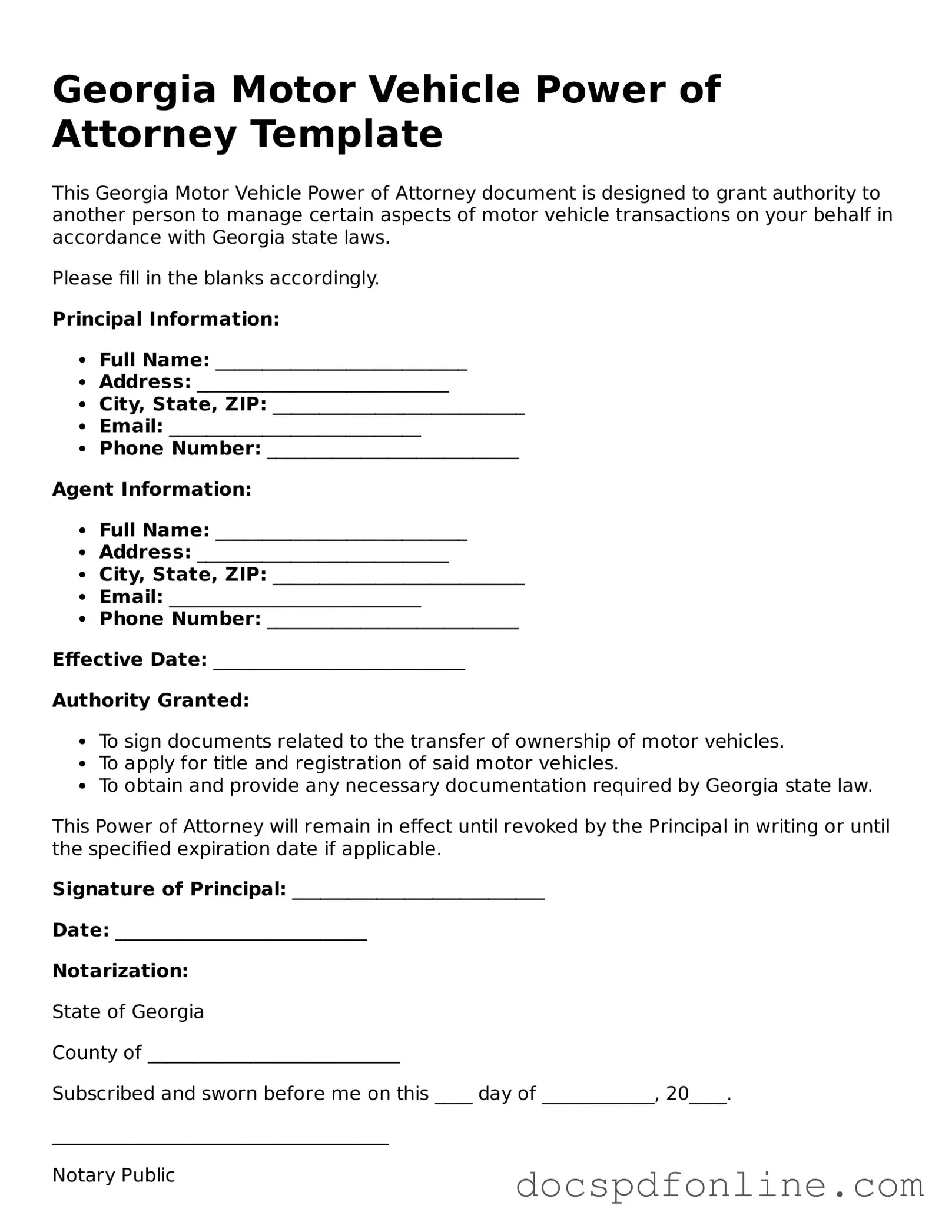Legal Motor Vehicle Power of Attorney Template for Georgia
The Georgia Motor Vehicle Power of Attorney form allows an individual to designate another person to act on their behalf regarding motor vehicle transactions. This can include tasks such as registering a vehicle, transferring ownership, or obtaining titles. Understanding how this form works can simplify the process of managing vehicle-related matters.
Launch Editor Now

Legal Motor Vehicle Power of Attorney Template for Georgia
Launch Editor Now
Save time — finish this form fast
Finish Motor Vehicle Power of Attorney online — edit, save, download made easy.
Launch Editor Now
or
↓ PDF File
